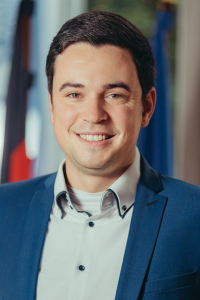Online seminar
Details
The European Union finds itself in troubled waters these days. The corona pandemic seems to gain ground again with record-breaking numbers of daily cases in many member states and all the societal and economic consequences that come with it. At the same time, further crises re-appear on the European radar, such as the migration crisis as well as foreign policy-related issues in the European neighborhood. Despite these difficult circumstances, the ambitious plans of the von der Leyen Commission, to make the Union more competitive, more sustainable and more prosperous remain equally important and call for immediate action in many fields.
In order to steer the European ship through these crises while making it fit for the future, several key priorities were identified and will guide the action of the EU within the next months. One of the timeliest ones is the field of health policy and the question, whether or not more competences should be moved from the national to the European level in order to address pressing issues during the corona pandemic but also in order to be better prepared for potential future health crises. A second field of interest is security policy. In an increasingly complex world, the European Union must find its place and will need to make sure to be well-equipped for a wide range of potential problems and challenges. The issue of European security is crucial in that regard as it ranges from foreign policy to the Schengen zone, from resilience to social security for EU citizens. Therefore, EU security policy has an impact on many aspects that are currently discussed in Brussels and the 27 EU capitals. Last but not least, the topic of education is of utmost importance for the younger generation, who sees the European project through its own eyes and is eager to shape the future of the continent around the topics they consider most relevant: besides climate change and digitization, education is certainly among the key issues. How does education in a more digitalized and ever closer connected EU looks like? Which incentives can be expected and should be envisioned by the decision makers?
Program
10:00 Registration and Opening Remarks
Prof. Christine Neuhold
Dean of the Faculty of Arts and Social Science
Professor of EU Democratic Governance
Maastricht University
Dr. Hardy Ostry
Director
European Office of Konrad-Adenauer-Stiftung
10:15 Keynote Speech
Themis Christophidou
Director-General
Directorate-General (DG EAC)
European Commission
10:45 Short Q&A session for participants
11:00 Coffee Break
11:15 Three parallel workshops
Workshop I – Health
Impulse by Pernille Weiss MEP
Member of the ENVI Committee
European People’s Party
Workshop II – Security
Impulse by Rasa Juknevičienė MEP
Former Minister of Defence of Lithuania
European People’s Party
Workshop III – Education
Impulse by Sabine Verheyen MEP
Chair of the CULT Committee
European People’s Party
Sessions will be moderated by students.
13:15 Lunch Break
14:00 Presentation of results and concluding panel
Chaired by Teun Dekker
Professor of Liberal Arts and Science Education
University College Maastricht (UCM)
15:30 Closing Remarks
Dr. Hardy Ostry
Director
European Office of Konrad-Adenauer-Stiftung
Martin Paul
President
Maastricht University
15:45 End of Event
Partner
University College Maastricht (UCM)



